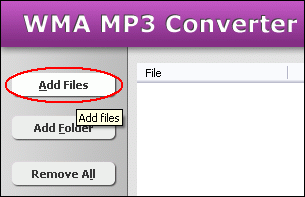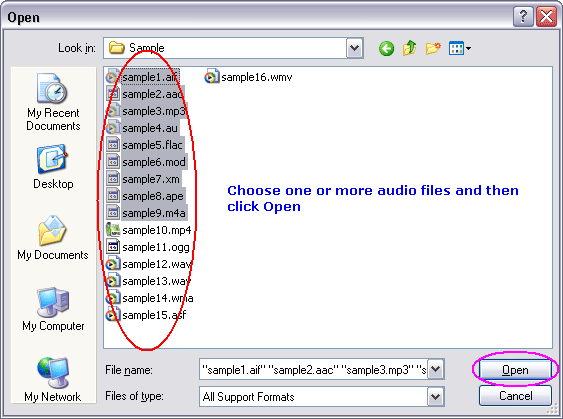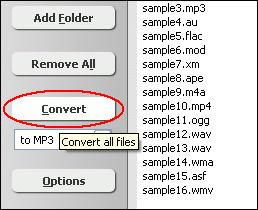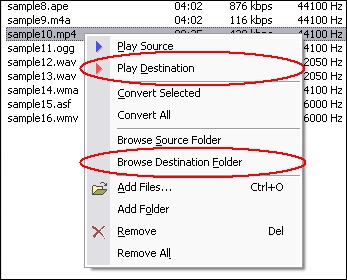MLP to ASFConvert MLP to ASF, MLP to ASF Converter |
 |
| Home | Getting Started | Download | Buy Now! | Screen Shots | FAQ | Support | Contact |
MLP to ASF Converter converts MLP to ASF. The software is an ALL-IN-ONE audio converter that supports more than 100 audio and video files. MLP to ASF Converter supports batch conversion and is full compatible with Vista and Windows 7.
What is MLP? The MLP is used by Meridian codec. Audio compression used on DVD video discs. MLP performs lossless compression of up to 63 audio channels including 24-bit material sampled at rates as high as 192kHz. Lossless compression has many applications in the recording and distribution of audio. In designing MLP we have paid a lot of attention to the application of lossless compression to data-rate-limited ransmission (e.g. storage on DVD), to the option of constant data rate in the compressed domain and to aspects that impact on mastering and authoring. MLP was targeted to provide:
MLP provides for up to 63 channels, but applications tend to be limited by the available data rate. To aid compatibility, MLP uses a hierarchical stream structure containing multiple substreams and hierarchical additional data. With this stream structure decoders need only access part of the stream to playback subsets of the audio. Suitable use of the substreams also allows 2-channel compatibility; a low-complexity decoder can recover a stereo mix from a multichannel stream. Figure 1 gives an overview of the process of losslessly compressing a stream containing multiple audio channels and auxiliary data onto a disc. What is ASF? ASF is based on serialized objects which are essentially byte sequences identified by a GUID marker. The format does not specify how (i.e. with which codec) the video or audio should be encoded; it just specifies the structure of the video/audio stream. This is similar to the function performed by the QuickTime, AVI, or Ogg container formats. One of the objectives of ASF was to support playback from digital media servers, HTTP servers, and local storage devices such as hard disk drives. The most common filetypes contained within an ASF file are Windows Media Audio (WMA) and Windows Media Video (WMV). Note that the file extension abbreviations are different from the codecs which have the same name. Files containing only WMA audio can be named using a .WMA extension, and files of audio and video content may have the extension .WMV. Both may use the .ASF extension if desired. ASF files can also contain objects representing metadata, such as the artist, title, album and genre for an audio track, or the director of a video track, much like the ID3 tags of MP3 files. It supports scalable media types and stream prioritization; as such, it is a format optimized for streaming. The ASF container provides the framework for digital rights management in Windows Media Audio and Windows Media Video. An analysis of an older scheme used in WMA reveals that it is using a combination of elliptic curve cryptography key exchange, DES block cipher, a custom block cipher, RC4 stream cipher and the SHA-1 hashing function. ASF container-based media is usually streamed on the internet either through the MMS protocol or the RTSP protocol. MLP to ASF Related Topics: M4A to ASF, F4B to ASF, AC3 to ASF, M2A to ASF, ADX to ASF, MPGA to ASF, AAC to ASF, RMI to ASF, CAF to ASF, WV to ASF, RMJ to ASF, UMX to ASF, MOD to ASF, OMA to ASF, MTM to ASF, MLP to ASF, CD to ASF, NSA to ASF, MPA to ASF, XM to ASF, AU to ASF, W64 to ASF, AMR to ASF, WAVE64 to ASF, S3M to ASF, ALAW to ASF, MKA to ASF, SHN to ASF, MMF to ASF, F4A to ASF
|
| Home | Getting Started | Download | Buy Now! | Screen Shots | FAQ | Support | Contact | Links |
| Copyright © 2007-2014 Hoo Technologies All rights reserved. Privacy Policy |





